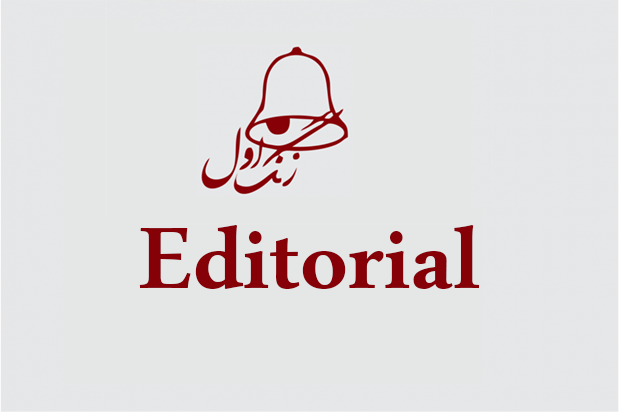The free operation of the media and press is one of the greatest achievements of Afghanistan in the last two decades. This is a great achievement, but it currently faces four serious threats. Collective struggle and public resistance are needed to address these threats and maintain this achievement.
The first threat related to the government’s peace debate with the Taliban is political. Unfortunately, the side against the peace of the government is a religious extremist group that does not have a good relationship with the free press and media. The group has repeatedly criticized the freedom of the press and media in its official positions. Hence, it is feared that this freedom will be sacrificed in a possible peace agreement between the government and the Taliban.
The second threat to the free operation of the media and press is security threats. According to Reporters Without Borders and the Afghanistan Center for the Protection of Women Journalists, 20 journalists and media workers have been targeted in the past six months. Of these, eight were killed, including four women. Thirty other journalists and media workers have been threatened during this period. The above figures show that Afghanistan is a very dangerous country for journalistic activities.
The third threat is self-censorship and attempts by government agencies to refrain from providing information. Security and political threats, in turn, have led to media self-censorship. Given that there is no certainty about the future, the level of self-censorship in the press and media may increase.
In addition, government institutions have sometimes been a serious obstacle to the free flow of information. It has happened many times that government institutions have refused to provide timely and complete information to journalists, even though this information was not part of the government’s confidential information and it was the right of the people to be aware of it. This has damaged the process of free flow of information in the country and has replaced false and misleading information in the society. Of course, the source of this false and misleading information has been social media networks in the absence of reliable media and press access to it in the first place.
The fourth threat is the chaotic economic situation and poverty in the country. The media and press have been severely affected by this situation. A significant number of local media outlets and news sites have shut down due to economic weakness. It is very likely that other free media and press will face the same fate.
These four threats are very serious and have jeopardized one of Afghanistan’s greatest achievements in the last two decades. Hence, in order to maintain this great national achievement, it is necessary to fight collectively and responsibly against these threats.
First of all, it should be emphasized that freedom of expression and free media and press are vital to the future of the people and democracy in Afghanistan. With the free activity of the media and the press, dictatorship, corruption and violation of justice can be prevented and the development of the rule of law and democracy in the country can be helped. Therefore, it is very important that the free activity of the press and media should not be sacrificed in a possible peace agreement between the government and the Taliban.
Second, government agencies must act honestly to ensure the safety of journalists and media outlets. It is the duty of these institutions to prevent targeted terrorist attacks against journalists and media outlets. Government institutions and agents must know that the death of journalists and the closure of the media is their own death. Thus, ignoring security threats against journalists and media outlets means ignoring the threats that have targeted their survival.
Officials should also be aware that the free flow of information helps strengthen the government and democracy in the country. Therefore, they should not become an obstacle to the free flow of information and damage the process of principled information in the country.
Only by responsibly addressing these threats can the free operation of the press and media be saved from danger. Most of the responsibility in this campaign lies with government institutions. The free operation of the press and media, as one of the greatest achievements of Afghanistan in the last two decades, cannot be protected by the political slogans of the officials on the third of May every year. These officials must do what they have promised and what the law dictates.











